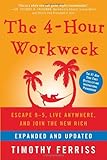From the manufacturer’s point of view, endorsements are designed to help promote the credibility of a company’s instruments or accessories. They also exist to give the appropriate support to established artist and to help the company sell more instruments.
Ask Why
When someone asks a manufacturer that they want to endorse their instruments, they listen without interrupting until they are completely finished with their pitch. Then, after a long pause, they look you straight in the eye and say one word, which is one of the most empowering words in our language. They simply ask "Why?’
The artist’s response will ensure or quell any interest on the manufacturer’s behalf. If they continue talking about how good they are, or how close they are to signing that big record deal, or how they would be crazy not to sign them, then they’re invited to send a package and the conversation is ended as quickly and politely as possible.
If, on the other hand, the artist says that they love the instruments, have found complete freedom in musical expression playing them, and indicate that they will continue playing them whether they are endorsed or not, they continue to listen.
Be Professional
It is amazing that musicians will apply to several manufacturers at the same time. Consider the lack of credibility involved here. What does this say about their musical decisions? What they are really saying is that it doesn’t matter, musically, what instrument they play and that they are just looking to find the company that will give them more.
Musicians "get a clue." If you want to be taken seriously in the big leagues, act like a professional, make a musical decision, and stay with it. If you want to be considered for a corporate, musical, and personal relationship through an endorsement, consider the following:
1) Cast a clear vision for yourself: know who you are; determine your own sound; devote yourself to music … the songs, the group, the sound, your students, and your career. When you are making a living playing music and have something to offer others, then move on to number two.
2) Ask yourself why. Why are you asking for an endorsement? What are you willing to offer? What do you bring to the table that would matter? What attributes do you have as a person and as an artist that would make you invaluable to a company?
3) Do you have an established career in music? This is a yes or no question. Be realistic, as this is the real world. Some guidelines: how many thousand or tens-of-thousands of recordings were sold last year with your name listed as the main artist? Are you currently on a major tour? How long have you been in your current band or symphony? Of what college or university are you a faculty member? If you are still in college, stay focused on your music and forget about endorsements.
4) In order to merit clinic support, you must be a great clinician. A great player is not necessarily a great teacher or clinician. This is an important point. Before you ask for clinic support, have 100 clinics under your belt and make sure that belt is a black belt in the art of teaching. It is important to the manufacturers that someone who calls himself or herself a clinician is indeed artful and effective at this work.
5) Make yourself an expert on the company that manufactures the instruments you play. You show know its history, philosophy, current artist roster, and position in the market. If you want to be an endorsing representative of a company, you simply must know and respect whom you would be representing before you approach them. Study the company’s website and determine how it represents its artists. Do you fit in the roster?
6) Establish rapport. Introduce yourself at trade shows to the company’s staff without presenting a package or even mentioning the word endorsement. They assume, if you are talking to them, that you can play. Remember, many of the people working for instrument manufactures are fine musicians. Many of them would surprise you if you ever heard them play. In the endorsement context, you need to present yourself as a businessperson. They would like to know what it would be like to work with you.
7) Prepare a well-crafted promotional package. Your package should include a short letter, a biography, a recording, a photo, and the URL to your website. Take time and have fun constructing this package; it is your first impression. Do some background work and be sure your sending it to the right person. Get the correct spelling of his or her name, as well as that person’s correct title.
8) Don’t expect free instruments or to be paid money in return for playing a company’s instrument. Artist discounts will be discussed after your package has generated interest. Companies expect endorsing artists to play their instruments exclusively; to mention their companies at educational events; to thank the company for their support; and, when possible, to include the company’s name on recording materials. Individual companies may have other expectations beyond these, which will be discussed if they are interested.
9) Keep focused on the music while paying attention to your sound and to your business skills. Music manufacturers are, above all, interested in being represented by good, professional musicians who truly love the tools of their trade.
An endorsement relationship with a company is a privilege. It is a truly reciprocal relationship, which is based on trust and great communication. Endorsements do not exist to propel anyone’s career. Rather your successful career will propel endorsements.

 The Four Hour Work Week
The Four Hour Work Week